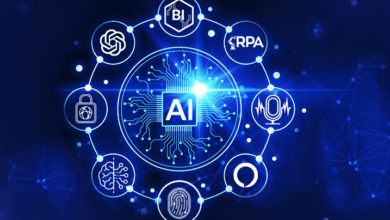Exploring the Role of Ethical AI in Shaping Tomorrow’s Technologies

The rapid advancement of artificial intelligence (AI) is reshaping industries and societies, unlocking possibilities once thought to belong to science fiction. From self-driving cars to predictive healthcare and autonomous financial systems, AI promises to transform the way we live and work. However, with this immense potential comes significant responsibility. As AI becomes more ingrained in our daily lives, the demand for ethical AI becomes more critical than ever. Ethical AI ensures that these technologies are developed and used in ways that align with societal values, protect human rights, and avoid harmful consequences.
The integration of ethical principles into AI is no longer optional but a fundamental necessity for shaping a future where AI serves humanity positively. This article explores the vital role of ethical AI, the principles guiding its implementation, the challenges it faces, and how it is poised to shape the technologies of tomorrow.
What Is Ethical AI?
Ethical AI refers to the development and use of artificial intelligence technologies in ways that are fair, transparent, accountable, and aligned with ethical standards. AI systems, by design, rely on large datasets and complex algorithms to make decisions autonomously or semi-autonomously. These systems have far-reaching implications, especially when they are used in sensitive domains like healthcare, criminal justice, or financial services.
The core objective of ethical AI is to prevent harm by ensuring that AI systems operate without bias, discrimination, or exploitation. This involves creating systems that are not only technically advanced but also sensitive to human values, rights, and societal norms. For instance, an AI system used for hiring should not inadvertently disadvantage candidates based on gender, race, or socio-economic background due to biased training data. Similarly, AI used in healthcare must ensure patient data is safeguarded and that recommendations made by the AI are accurate and justifiable.
As AI grows in influence and capability, the importance of embedding ethics into its very architecture becomes clear. Without ethical safeguards, AI systems could amplify societal inequalities, infringe on privacy, or even cause unintended harm. Ethical AI serves as a buffer, ensuring that AI benefits are broadly shared while minimizing risks.
Key Principles of Ethical AI
Several foundational principles guide the development of ethical AI. These principles provide a framework for developers, policymakers, and businesses to ensure that AI technologies are used responsibly and with consideration of their potential impact.
- Fairness: Fairness in AI means ensuring that the technology does not discriminate against individuals or groups based on factors such as race, gender, age, or economic status. This requires identifying and eliminating biases in the data used to train AI systems. For instance, if an AI system is used to approve loans or insurance policies, it must treat all applicants equitably, without favoring certain demographics over others. Achieving fairness requires continuous monitoring and assessment of AI systems to ensure they remain unbiased as they evolve.
- Transparency: AI systems must be transparent in their operations, meaning that stakeholders, users, and affected individuals should be able to understand how decisions are made. This is particularly important in critical sectors such as criminal justice, where an AI algorithm’s decision could affect someone’s freedom or legal outcome. Transparency builds trust and allows for accountability, ensuring that AI is used ethically and with the ability to scrutinize its processes.
- Accountability: With great technological power comes the need for responsibility. AI developers and organizations using AI must be held accountable for the outcomes of their systems. This means that when AI makes mistakes or causes harm, there should be mechanisms in place to address these issues and offer recourse. Accountability also ensures that the creators and users of AI are responsible for ensuring their systems comply with ethical and legal standards.
- Privacy: AI systems, especially those handling personal data, must respect privacy rights. Ethical AI practices dictate that data used in AI models should be collected and processed with consent and that sensitive personal information is safeguarded against misuse or unauthorized access. In industries like healthcare, protecting privacy is critical to maintaining patient trust and complying with regulations like the General Data Protection Regulation (GDPR).
- Beneficence and Non-maleficence: AI systems should be designed to do good and avoid harm. This principle is especially relevant in areas where AI can directly affect human well-being, such as healthcare, law enforcement, and autonomous driving. Ethical AI should focus on promoting positive outcomes, ensuring that the technology is used to enhance human life rather than compromise it.
The Role of Ethical AI in Shaping Major Industries
AI’s influence spans across various industries, and each sector presents unique ethical challenges. Let’s explore how ethical AI is crucial in key sectors and how it shapes the future of these industries.
1. Healthcare
The healthcare industry stands to benefit immensely from AI, with applications ranging from disease diagnosis to personalized medicine. AI can analyze complex datasets from medical records, images, and genetic information to make diagnostic predictions or suggest treatment plans. However, ethical concerns in healthcare AI are particularly pronounced due to the life-or-death stakes involved.
Ethical AI in healthcare ensures that algorithms are free from bias, transparent in their decision-making, and operate under strict privacy protections. For instance, AI systems should not disproportionately misdiagnose patients from minority groups due to biases in training data. Additionally, patient consent is paramount when using AI for sensitive data processing, and privacy laws must be adhered to at all times. By embedding these ethical principles, AI can help revolutionize healthcare without compromising patient safety or rights.
2. Financial Services
AI is transforming the financial sector, from fraud detection to algorithmic trading and automated customer service. AI systems in finance often make decisions about creditworthiness, loan approvals, and investment strategies, which directly impact individuals’ economic lives. However, without ethical oversight, AI in finance can perpetuate existing inequalities and reinforce systemic biases.
For example, if a credit-scoring AI uses biased data that underrepresents certain demographics, it may unfairly deny loans to individuals based on factors such as race or gender. Ethical AI in finance ensures that decision-making is fair, transparent, and based on accurate and unbiased data. Moreover, consumers must be able to understand how AI-driven decisions were made, fostering accountability and trust in financial institutions.
3. Autonomous Vehicles
One of the most groundbreaking applications of AI is in autonomous vehicles, where AI systems control cars, trucks, and even drones with little to no human intervention. These systems rely on AI for navigation, object recognition, and real-time decision-making in complex traffic environments. While autonomous vehicles promise to improve road safety and reduce accidents, ethical dilemmas arise in scenarios where accidents are unavoidable.
For instance, how should an AI-driven car react when faced with a situation where it must choose between hitting a pedestrian or crashing into another vehicle? These are moral questions that require careful ethical consideration. Autonomous vehicle AI must be programmed with clear ethical guidelines that prioritize human safety while ensuring accountability for the decisions made by AI systems.
4. Law Enforcement and Criminal Justice
AI is increasingly being used in law enforcement and criminal justice systems for tasks such as predictive policing, facial recognition, and risk assessment in sentencing. However, ethical concerns arise when AI systems are used to make decisions that can affect an individual’s freedom or life. For example, biased data used in predictive policing AI systems can lead to disproportionate targeting of minority communities.
Ethical AI in criminal justice ensures that these systems are free from bias, operate transparently, and are accountable for their decisions. It also requires oversight to prevent the misuse of AI technologies that could lead to civil liberties violations. AI should support fair justice processes, not reinforce existing biases or inequalities.
Challenges in Implementing Ethical AI
While the need for ethical AI is widely recognized, there are significant challenges to its implementation. These challenges stem from both technical limitations and broader societal issues.
- Data Bias: One of the most prominent challenges in ethical AI is the problem of biased data. AI systems learn from data, and if the data used for training contains biases, the AI will replicate those biases. In areas such as hiring, lending, or law enforcement, this can lead to discriminatory outcomes. Addressing data bias requires comprehensive data collection practices, continuous monitoring of AI outputs, and updating algorithms to correct biases as they are identified.
- Explainability: Many AI systems, particularly those based on deep learning, are often seen as “black boxes” because their internal decision-making processes are not easily understood, even by their creators. This lack of explainability makes it difficult to assess whether the AI’s decisions are ethical or unbiased. Developing explainable AI (XAI) technologies is a growing field, but balancing complexity and transparency remains a significant hurdle.
- Lack of Regulation: The rapid advancement of AI has outpaced the development of regulatory frameworks. Currently, there is no comprehensive global regulatory body overseeing the ethical use of AI, leaving companies and industries to self-regulate. While some governments, like those in the European Union, are creating AI-specific regulations, more work is needed to establish global standards for ethical AI governance.
- Cultural and Societal Differences: Ethical standards vary across countries and cultures, making it difficult to implement universal ethical AI guidelines. Privacy norms, for example, differ widely between countries, affecting how AI systems can handle personal data. Developing flexible ethical frameworks that respect cultural diversity while upholding fundamental human rights is essential for global AI adoption.
Opportunities for Advancing Ethical AI
Despite the challenges, there are significant opportunities for advancing ethical AI. By focusing on collaboration, education, and innovation, we can ensure that AI technologies align with ethical standards and benefit society as a whole.
Collaborative Regulation: Governments, technology companies, and international organizations must work together to create comprehensive regulatory frameworks that govern the ethical use of AI. These regulations should be adaptable to the rapid pace of AI development while ensuring that AI systems comply with ethical principles such as fairness, accountability, and transparency.



